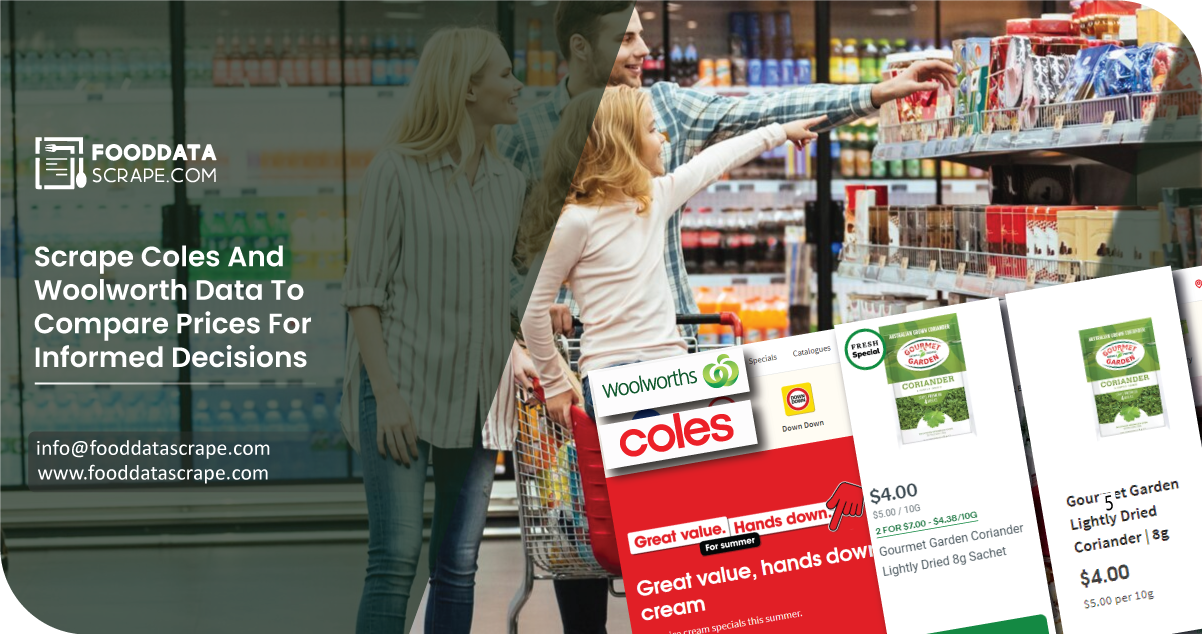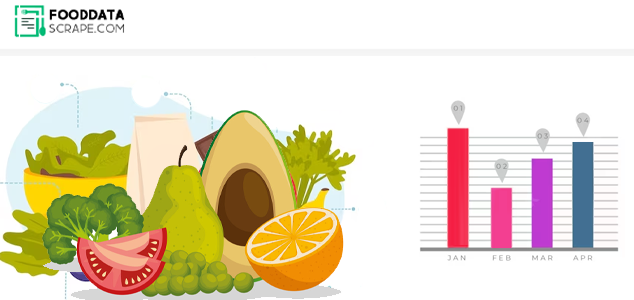The Client
Our prominent supermarket chain client utilized our retail data scraping services to compare pricing data from Coles and Woolworths. Through this strategic analysis, we provided valuable insights that informed pricing decisions, optimizing their competitiveness in the market. Our tailored approach to data extraction allowed the client to make informed, data-driven choices, showcasing the effectiveness of leveraging retail data for enhanced decision-making in the dynamic landscape of the supermarket industry.
Key Challenges
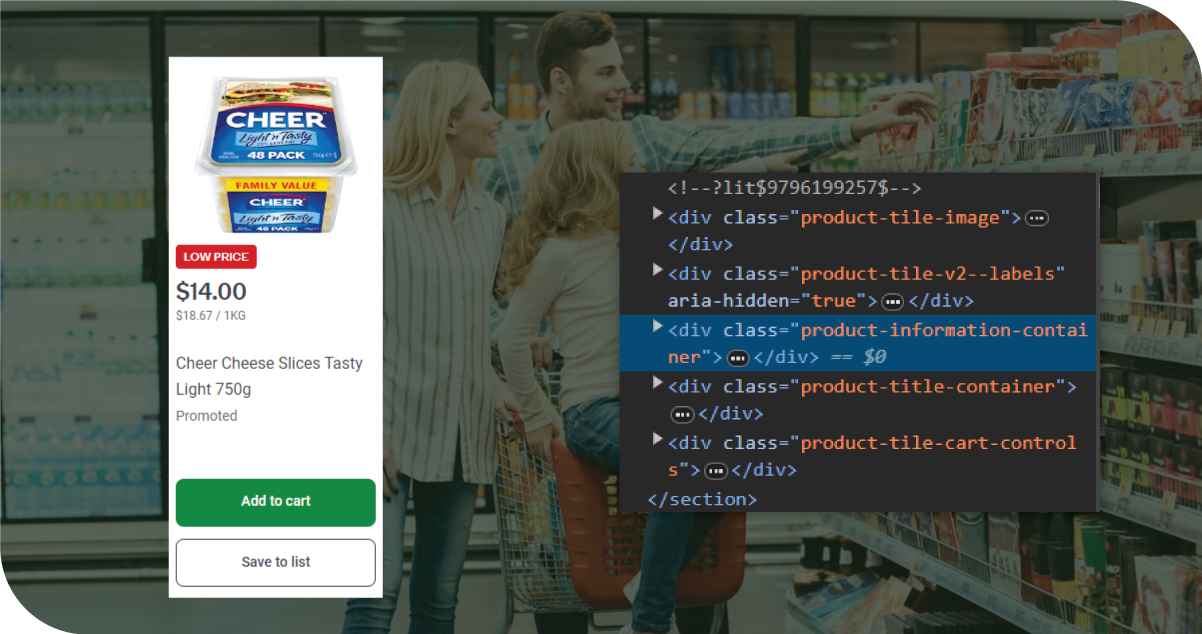
Both Coles and Woolworths implement robust security protocols to protect their data. Overcoming these security measures required advanced techniques to ensure our scraping efforts remained undetected and compliant with ethical standards.
The dynamic nature of Coles and Woolworth's websites posed a challenge as their structures frequently changed. Adapting our scraping algorithms to handle these changes and maintain data accuracy required continuous monitoring and adjustments.
Coles and Woolworths employ anti-scraping measures to protect against automated data extraction. Developing strategies to bypass these measures while ensuring ethical scraping practices was crucial for the project's success.
Coles and Woolworths' extensive product databases presented challenges in efficiently managing and processing large volumes of data. Optimizing our scraping algorithms for scalability and performance became essential to handling substantial retail information.
Key Solutions
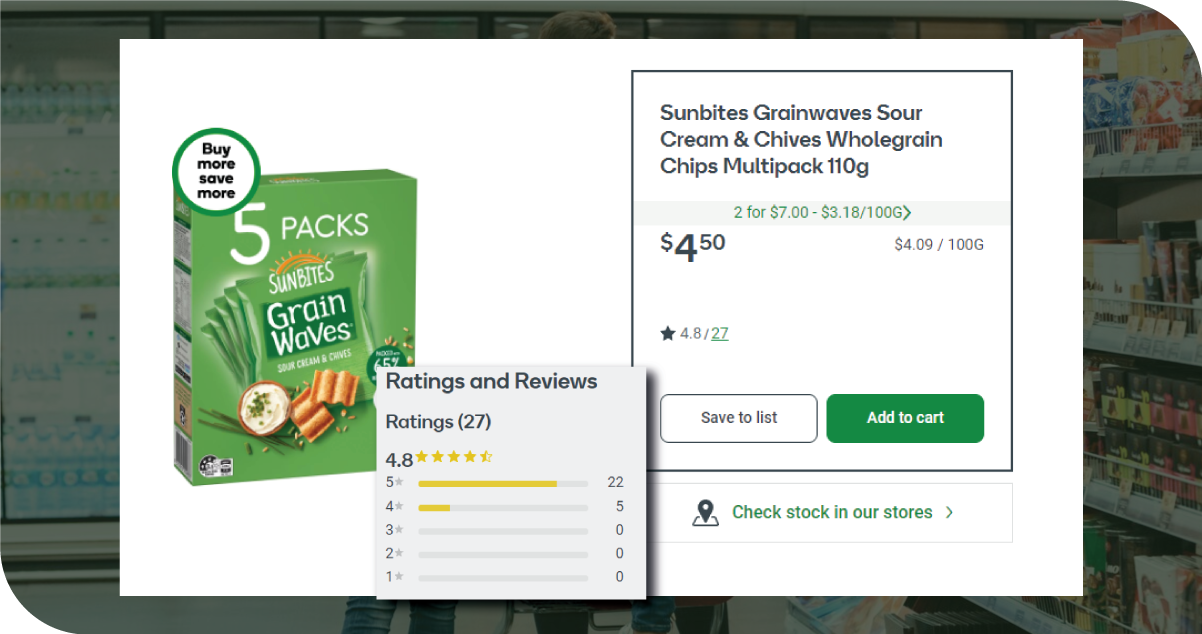
To Scrape Coles and Woolworth data, we implemented advanced encryption techniques to anonymize our scraping requests, ensuring compliance with ethical standards while effectively navigating Coles and Woolworths' security protocols.
In response to the dynamic website structures, we developed adaptive scraping algorithms capable of recognizing and adjusting to changes in Coles and Woolworths' web layouts. Regular monitoring and updates to our algorithms ensured sustained accuracy in data extraction.
The overcoming anti-scraping measures involved implementing IP rotation and user-agent rotation strategies. By mimicking human-like browsing behavior, we minimized the risk of detection, enabling a seamless and ethical scraping process.
We implemented distributed data processing techniques to address the challenge of large data volumes. It involved breaking down the data extraction process into smaller, manageable tasks, optimizing efficiency, and ensuring the timely retrieval of extensive retail information from Coles and Woolworths.
Methodologies Used
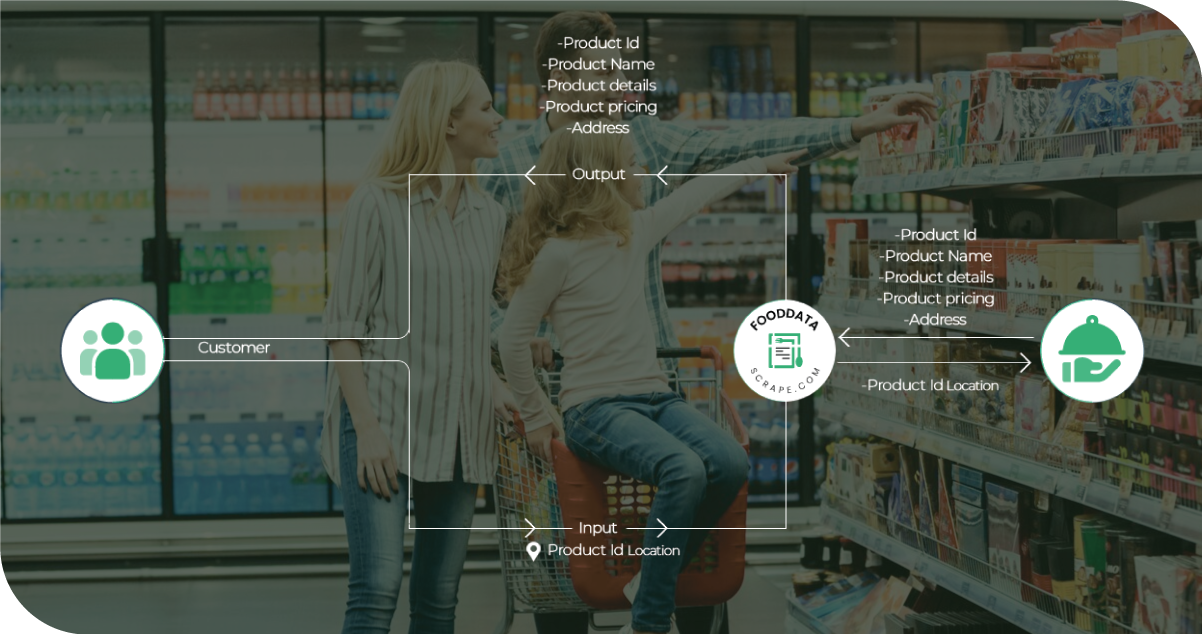
HTML Parsing: We employed HTML parsing techniques to navigate and extract relevant information from the structure of Coles and Woolworths web pages.
XPath and CSS Selectors: We leveraged XPath and CSS selectors to locate and extract specific data elements within the HTML structure precisely, ensuring information retrieval accuracy.
Headless Browsing: We utilized headless browsers to simulate human-like interactions with Coles and Woolworths websites, enabling seamless navigation and data extraction while minimizing the risk of detection.
Proxy Rotation: Implemented proxy rotation to mask our scraping activities, preventing IP bans and enhancing anonymity during the data extraction.
User-Agent Rotation: Our retail data scraper used varied user-agent headers to emulate different web browsers and devices, enhancing our scraping strategy's resilience against anti-scraping measures.
Session Management: Implemented session management techniques to maintain persistent connections with Coles and Woolworths servers, optimizing data retrieval efficiency and ensuring consistent scraping performance.
Rate Limiting and Throttling: Implemented rate limiting and throttling mechanisms to regulate the frequency of scraping requests, preventing server overload and minimizing the likelihood of triggering anti-scraping measures.
Error Handling and Retry Strategies: Developed robust error handling and retry mechanisms to address occasional disruptions in data extraction, ensuring the scraping process remained resilient and capable of recovering from temporary setbacks.
Advantages of Collecting Data Using Food Data Scrape
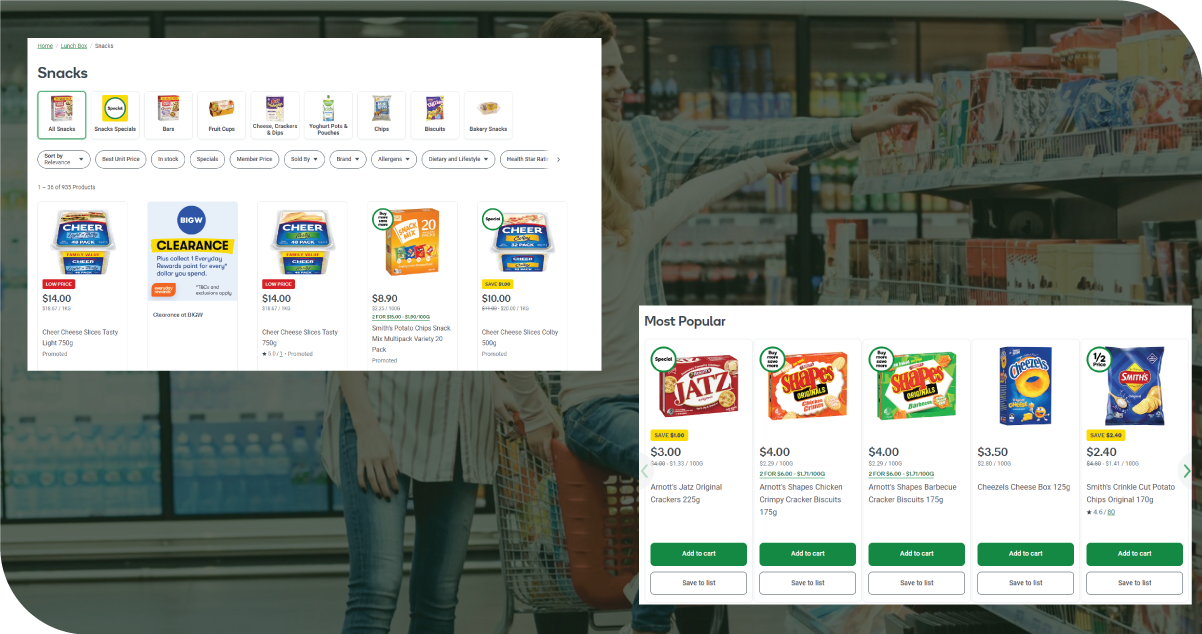
- Holistic Data Aggregation: Food Data Scrape consolidates information from diverse sources, offering businesses a comprehensive dataset encompassing menu details, pricing, reviews, and other vital insights.
- Real-Time Market Intelligence: Enjoy timely updates and stay ahead with real-time market insights. Regular data scraping empowers businesses to make informed decisions based on the latest trends and evolving consumer preferences.
- In-Depth Competitor Analysis: Utilize scraped data for effective benchmarking. Businesses can conduct thorough competitor analyses, comparing menu offerings, pricing strategies, and customer reviews to refine their approaches and stay competitive.
- Strategic Pricing Analytics: Leverage data scraping for strategic pricing decisions. Gain insights into pricing trends and variations across various food establishments, empowering businesses to optimize their pricing strategies.
- Tailored Marketing Strategies: Understand consumer behavior through scraped data. Tailor marketing efforts to specific preferences, improving customer engagement and ultimately enhancing overall satisfaction.
- Identification of Popular Items: Uncover popular food items with scraped data. Businesses can optimize menus, introduce new offerings, and adapt to changing consumer tastes, staying attuned to market demands.
- Efficient Supplier Discovery: Utilize scraped data to identify potential suppliers or partners in the food industry. Foster efficient and mutually beneficial relationships that contribute to the business's overall success.
Final Outcome: Successfully scraping retail data from Coles and Woolworths enabled our client to compare prices comprehensively. This accomplishment gave our clients invaluable insights into the competitive landscape, allowing them to make informed decisions about pricing strategies, product positioning, and overall market competitiveness. The data obtained facilitated a nuanced understanding of the retail market, empowering our clients to optimize their offerings, enhance customer value, and remain agile in responding to dynamic market trends. Our success in this data scraping endeavor exemplifies our commitment to delivering actionable intelligence that drives strategic decision-making and business success.






















































































